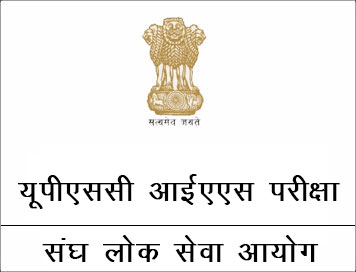
संघ लोक सेवा आयोग सिविल सेवा - मुख्य परीक्षा
(Download) UPSC IAS Mains Exam Paper - 2017 : कृषि-विज्ञान (Paper - 1)
कृषि-विज्ञान
(प्रश्न-पत्र I)
निर्धारित समय : तीन घंटे
अधिकतम अंक: 250
प्रश्न-पत्र सम्बन्धी विशेष अनुदेश
(उत्तर देने के पूर्व निम्नलिखित निर्देशों को कृपया सावधानीपूर्वक पढ़ें)
इसमें आठ प्रश्न हैं जो दो खण्डों में विभाजित हैं तथा हिन्दी और अंग्रेज़ी दोनों में छपे हैं।
परीक्षार्थी को कुल पाँच प्रश्नों के उत्तर देने हैं।
प्रश्न संख्या 1 और 5 अनिवार्य हैं तथा बाकी में प्रत्येक खण्ड से कम-से-कम एक प्रश्न चुनकर किन्हीं तीन प्रश्नों के उत्तर दीजिए ।
प्रत्येक प्रश्न/भाग के अंक उसके सामने दिए गए हैं।
प्रश्नों के उत्तर उसी माध्यम में लिखे जाने चाहिए जिसका उल्लेख आपके प्रवेश-पत्र में किया गया है, और इस माध्यम का स्पष्ट उल्ले प्रश्न-सह-उत्तर (क्यू.सी.ए.) पुस्तिका के मुख-पृष्ठ पर निर्दिष्ट स्थान पर किया जाना चाहिए । उल्लिखित माध्यम के अतिरिक्त अन्य कि माध्यम में लिखे गए उत्तर पर कोई अंक नहीं मिलेंगे ।
प्रश्नों की शब्द सीमा, जहाँ विनिर्दिष्ट है, का अनुसरण किया जाना चाहिए ।
प्रश्नों के उत्तरों की गणना क्रमानुसार की जाएगी । यदि काटा नहीं हो, तो प्रश्न के उत्तर की गणना की जाएगी चाहे वह उत्तर अंशतः दिया हो ।
प्रश्न-सह-उत्तर पुस्तिका में खाली छोड़ा हुआ पृष्ठ या उसके अंश को स्पष्ट रूप से काटा जाना चाहिए ।
खण्ड A
Q1. निम्नलिखित प्रत्येक का लगभग 150 शब्दों में वर्णन कीजिए :
(a) परिशुद्धि (प्रिसिशन) खेती ।
(b) उत्पादी एवं टिकाऊ कृषि के लिए पारिस्थितिक सिद्धांत
(c) ग्रीनहाऊस प्रभाव और भूमंडलीय तापन (ग्लोबल वार्मिंग)।
(d) कपास उत्पादन में बी.टी. कपास की भूमिका
(e) मृदा स्वास्थ्य
Q2. (a) पादप पोषकों को कैसे वर्गीकृत करते हैं ? फ़सल उत्पादकता में वे कैसी भूमिका निभाते हैं ?
(b) जैविक खेती (ऑर्गेनिक फार्मिंग) क्या है ? मृदा उर्वरता और फ़सल उत्पादकता को बनाए रखने में यह कैसे सहायक है ?
(c) जैविक खरपतवार नियंत्रण विधि का वर्णन उपयुक्त उदाहरणों सहित कीजिए।
Q3. (a) बुआई और रोपाई द्वारा धान उत्पादन की प्रौद्योगिकियों का वर्णन कीजिए ।
(b) पर्यावरणीय प्रदूषण को कम करने में वनरोपण की भूमिका का वर्णन कीजिए ।
(c) वन रोपण में सुदूर संवेदन (रिमोट सेंसिंग) और भौगोलिक सूचना तंत्र (जी.आई.एस.) की उपयोगिता का वर्णन कीजिए।
Q4. (a) फ़सल-खरपतवार-स्पर्धा का वर्णन कीजिए । शाकनाशियों की दक्षता को प्रभावित करने वाले विभिन्न कारकों की विवेचना कीजिए ।
(b) किसानों की आय बढ़ाने के लिए वन उत्पादों की उपयोगिता का वर्णन कीजिए ।
(c) ‘मृदा लवणता' का वर्णन कीजिए । भूमि-उद्धार के लिए विभिन्न विधियों को सूचीबद्ध कीजिए ।
खण्ड B
Q5. निम्नलिखित प्रत्येक का लगभग 150 शब्दों में वर्णन कीजिए :
(a) बारानी कृषि की समस्याएँ
(b) मृदा अपरदन और उसका प्रबन्धन
(c) लघु और सीमांत किसान।
(d) कृषि तथा ग्रामीण विकास के लिए स्वयं-सहायता समूह (एस.एच.जी.) उपागम
(e) फ़सल बीमा
Q6. (a) औद्योगिक बहि:स्राव द्वारा मृदा एवं जल कैसे प्रदूषित होते हैं ? इस समस्या को कम करने की रणनीतियाँ कौन-कौन सी हैं ?
(b) फ़सल उत्पादन के संबंध में जल उपयोग दक्षता बढ़ाने के लिए उपयोग की जाने वाली विभिन्न तकनीकियाँ कौन-कौन सी हैं ?
(c) फार्म योजना में कौन-से विभिन्न फार्म प्रबंधन उपकरण उपयोग किए जाते हैं ?
Q7. (a) कृषि विपणन में विपणन सूचना का क्या महत्त्व है ? भारत में बाजार आसूचना के स्तर की विवेचना कीजिए।
(b) कृषि प्रसार में लक्ष्य समूह कौन-कौन से हैं ? इन समूहों तक पहुँचने में के.वी.के. (कृषि विज्ञान केंद्र) किस प्रकार की भूमिका निभा सकते हैं ?
(c) भारत में कृषि उत्पादन के न्यूनतम समर्थन मूल्यों के महत्त्व का वर्णन कीजिए । इनका निर्धारण कैसे किया जाता है ?
Q8. (a) एकीकृत जल-संभर (वाटरशेड) प्रबंधन से आप क्या समझते हैं तथा बारानी कृषि में इसका क्या महत्त्व है ?
(b) जलाक्रांत मृदाओं में मृदा उर्वरता और फ़सल उत्पादकता बढ़ाने के लिए जल-निकास में सुधार हेतु विभिन्न उपायों का वर्णन कीजिए ।
(c) कृषि प्रसार शिक्षा के सिद्धांत क्या हैं ? यह औपचारिक शिक्षा से किस प्रकार भिन्न है ?

NEW! UPSC, IAS परीक्षा संपूर्ण अध्ययन सामग्री (प्रारंभिक, मुख्य, साक्षात्कार COMBO) - Hindi Medium